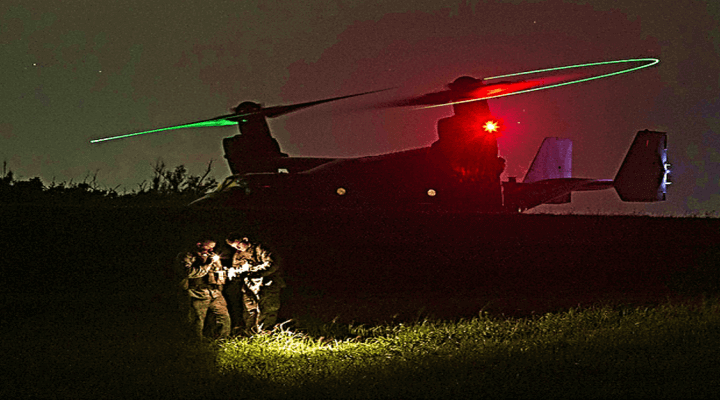In the history of hostage crises, few have begun or ended as oddly as the drama that unfolded last week in Pakistan. Five years ago, Joshua Boyle and his pregnant wife Caitlan Coleman, were “backpacking” through Wardak Province in Afghanistan, south of Kabul. Predictably, they were taken hostage by the Haqqani Network, perhaps the most violent faction of the Taliban coalition.
Acting on a tip from American intelligence, the Pakistani army rescued Coleman, originally from Stewartstown, Penn., and Boyle, originally from Smiths Falls in Ontario, Canada, as their captors were transporting them between holding sites.
Shortly thereafter, reports emerged that Boyle refused to board an American aircraft, allegedly for fear he’d be sent to Guantanamo Bay, Cuba. Coleman’s father-in-law later said Boyle didn’t want to travel through Bagram Airbase, where the U.S. once ran a “black site” alleged to be a torture site. For his part, Boyle told reporters he didn’t refuse anyone, just that he chose what he considered to be the best offer, one that took him and his family to Toronto.
Raise your hand if you think this whole thing stinks
There is something suspicious about the ordeal, starting before Coleman and Boyle were ever married. Boyd’s first wife, whom he married in 2009, was Zaynab Khadr. She is the older sister of Omar Khadr, the Canadian-born teenager who, as a 15-year-old in Afghanistan, killed Special Forces Sgt. 1st Class Christopher Speer with a hand grenade in 2002. Omar Khadr spent 13 years in confinement, first at Guantanamo Bay, and later, after his conviction for killing Speer, in Canada. He was released on parole in 2015. He received a $10.5 million payout and a formal apology from the Canadian government earlier this year.
Boyle’s reportedly deep interest in terrorism survived his marriage to Khadr.
Coleman was seven months pregnant in 2012, when the couple, in the midst of a trek through central Asia, decided to visit Afghanistan. They were taken hostage while hiking through Wardak Province, south of Kabul. (Can you imagine the conversation? “Trust me, sweetheart. Wardak is lovely this time of year.”) Addressing reporters after returning to Canada, Boyle said he was on a mission to help those “who live deep inside Taliban-controlled Afghanistan where no NGO, no aid worker and no government has ever successfully been able to bring the necessary help.”
there’s a reason
Set aside for a moment the question of what he thinks “necessary help” entails, and just how much of it he and his seven-month-pregnant wife could carry in on their backs. Even if one believes this story, it’s fair to ask why Boyle thought he could succeed where so many others had failed. There’s a very good reason why international aid is limited in many parts of Afghanistan: The Taliban want it that way.
Did he think his short-lived marriage to a woman whose father knew Osama bin Laden gave him special insight to negotiate the literal and figurative Afghan minefields?
I served as a Civil Affairs officer in Afghanistan twice: once in Khost Province (where I arrived three months after Khadr killed Sgt. Speer), and once, a year later, in neighboring Paktika Province. One incident stands out in my memory. We had provided a well for clean drinking water in Shkin, a village in southeastern Paktika along the Pakistani border. Shortly after the well was complete, villagers awoke to find on the well’s concrete covering a dead bird with a note pinned to it. The note said anyone who used the well would end up like the bird.
The incident illustrates the Taliban’s lack of interest in meeting the needs of the population, or allowing anyone else to help. They further proved that during their time in power and actions over the last 16 years.
Whatever their original intentions, Boyle and Coleman suffered horrifically at the Haqqani Network’s hands, including Coleman’s rape and the murder of their first child. Coleman gave birth to three other children during her five years in captivity, children who are no doubt overwhelmed by the sudden transition from Afghan backwater to rural Ontario. But the horrors the family endured do not absolve them of their responsibility to explain themselves.
Boyle has lots of questions to answer. Until he does so — to the satisfaction of Three-Letter Agencies — you would be forgiven for not trusting him, as the saying goes, as far as you could throw him.
CORRECTION: In Friday’s Daily Intel, I reported that President Trump would not decertify the Iran nuclear deal. In my haste to make sense of the many public reports ahead of his announcement I got it wrong. He did in fact refuse to certify that Iran was abiding by the terms of the JPCOA, but stopped short of calling for scrapping the deal altogether, or even for the immediate reimposition of sanctions.




